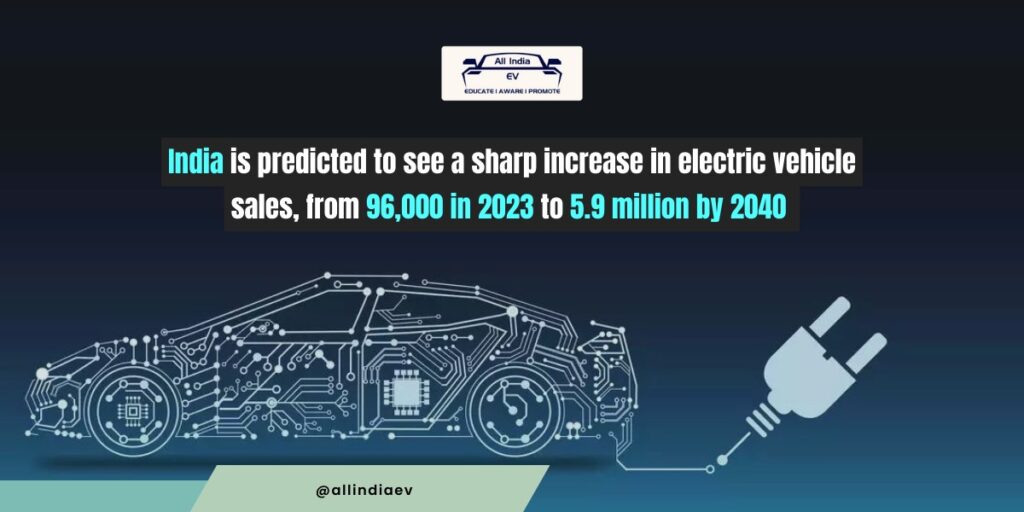
India’s EV Sales Expected to Soar to 5.9 Million by 2040, Up from 96,000 in 2023
India’s electric vehicle (EV) market is poised for a massive boost, with sales expected to rise from 96,000 units in 2023 to about 284,400 by 2027, marking a 199% growth, according to a BloombergNEF report. By 2040, EV sales are projected to surpass 5.9 million units under the Economic Transition Scenario (ETS).
The report emphasizes the importance of India achieving 100% zero-emission vehicle (ZEV) sales by 2038 to meet its net-zero passenger vehicle goals. It also predicts that India’s fleet of internal combustion engine (ICE) cars will peak at 64.5 million vehicles in 2033, three years earlier than the ETS forecast, highlighting a quicker shift to EVs under the Net Zero Scenario (NZS).
List your business on All India EV exclusive business directory… (click here)
The expected rise in EV sales is driven by several factors:
╰┈➤ Rapidly falling battery costs
╰┈➤ Advancements in battery technology making EVs more affordable compared to ICE vehicles
╰┈➤ Growing consumer interest with more EV models being launched
India’s ICE vehicle fleet is set to peak in 2033 at about 64.5 million vehicles and then decline, indicating a faster transition to EVs under the NZS compared to the ETS forecast.
(You can now subscribe to our All India EV WhatsApp channel)
The report notes that while EV adoption has been uneven globally, with slower growth in the U.S. and Europe due to regulatory and political changes, countries like India are catching up quickly. The share of electric cars in new passenger vehicle sales in India is expected to jump from 17.8% in 2023 to 33% by 2027, eventually reaching 73% by 2040 under the ETS.
Globally, China, the U.S., and Europe dominate the EV market, accounting for 89% of global passenger EV sales in 2027. However, India is emerging as a key market with more affordable electric vehicles designed for local buyers.
As India moves towards its net-zero goals, the report stresses the need for strong policy support to speed up EV adoption. This includes potential incentives for consumers and manufacturers, as well as infrastructure development like widespread charging stations.
The BloombergNEF report provides a detailed roadmap for stakeholders in the automotive and energy sectors, outlining the significant changes needed to achieve the 2050 net-zero targets. The findings highlight the urgent need for collaboration between the government, industry leaders, and consumers to embrace electric mobility.




